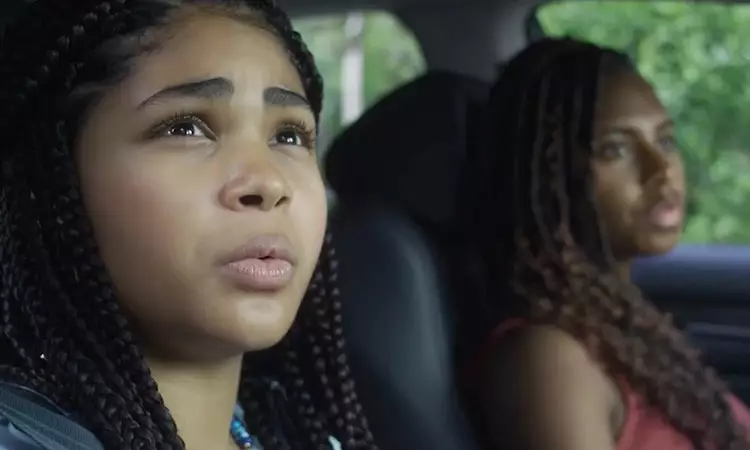In the cinematic landscape of horror and drama, few things resonate as powerfully as the intersection of haunting narratives and social issues. Parker Brennon’s film, *Hauntology*, encapsulates this dynamic by delving into the intricacies of LGBTQ identities amidst the eerie backdrop of Ohio’s ghostly heritage. The story begins with two sisters, Jazmine and Venus Price, navigating the complexities of their family’s haunted legacy. This article will explore how *Hauntology* transcends mere storytelling to serve as a poignant commentary on sexual difference, race, and the very history that both binds and divides families.
“Come with me and let me tell all my stories,” Jazmine urges her sister, positioning the audience to embark on a journey that is not solely entertaining but transformational. This deliberate invitation underscores an essential thematic aspect of the film: the power of storytelling as a tool for education and self-discovery. Jazmine’s tales offer much more than just spooky encounters; they challenge both Venus and the viewers to confront the societal prejudices that still pervade contemporary culture. The first exchange between the sisters establishes a dual purpose: to deliver thrilling experiences while also prompting introspection on issues of identity and acceptance.
One of the critiques often levied against anthology films is their fragmented nature. However, *Hauntology* defies this criticism through a carefully woven narrative structure that retains coherence across multiple story arcs. Each tale is intrinsically linked by an overarching exploration of LGBTQ themes, set against a uniquely haunted landscape. This thematic focus not only fortifies the emotional weight of each story but also illustrates an intricate family history among the characters.
The characters—particularly the Price and Cashel families—serve as embodiments of the past’s influence on the present. Their intertwined histories reflect how societal norms, represented through chilling ghostly presences, continue to haunt those who dare to diverge from conformity. As we navigate through the lives of these characters, we encounter themes of resistance and the struggle for acceptance among the living and the dead.
In one of the film’s most compelling segments, *Witchcraft Becomes Her*, we follow Julian Cashel’s journey of gender transition in a community that struggles to embrace change. With the guidance of a local witch, Julian must wrestle with remnants of a masculine past, illustrating how deeply ingrained societal norms can manifest as relentless specters. This portrayal not only highlights a personal journey of self-acceptance but also critiques the societal structures that seek to confine individuals within rigid boundaries.
The film also unearths a richer tapestry of LGBTQ experiences through the character of Mabel Bishop, whose ghostly presence offers a glimpse into the past. In *The Day Mabel Came Out of the Grave*, we witness Mabel’s posthumous embrace of her sexual identity as she connects with another lonely woman from her time. This relationship serves not only as a confession of love but also as a reflection on the evolving understanding of acceptance across generations.
Brennon employs various cinematic techniques to cultivate an atmosphere rife with tension and emotional depth. The use of lighting, particularly in *Paint and Black Lace*, pays homage to classic horror tropes while simultaneously serving the story’s purpose. As the figure of the artist May Felner rises from the grave to exact vengeance on those who have wronged her, her actions become a metaphor for reclaiming agency in a world that has historically silenced artistic voices.
Meanwhile, *The Old Dark Cashel House* introduces frustration against historical repression embodied by the antagonist, William Cashel. His patriarchal legacy serves as a ghostly reminder of the past’s grip on the present, compelling the characters to confront their inherited burdens and defining their own paths moving forward.
Throughout *Hauntology*, the theme of familial ties emerges as a powerful narrative device, illustrating how family legacies shape identity, belief, and resistance. As Venus learns about her ancestors’ struggles against societal norms, she is inspired to continue this lineage of defiance. Ultimately, the film gifts viewers with an evocative exploration of solidarity, resilience, and the haunting echoes of injustice. The ghosts of the past do not merely linger; they inform the ongoing fight for acceptance and understanding in a world that, while changing, still holds remnant prejudices at bay. Through a blend of horror and heartfelt storytelling, *Hauntology* emerges as an essential narrative in the conversation about identity, family, and the enduring power of sisterhood across generations.

